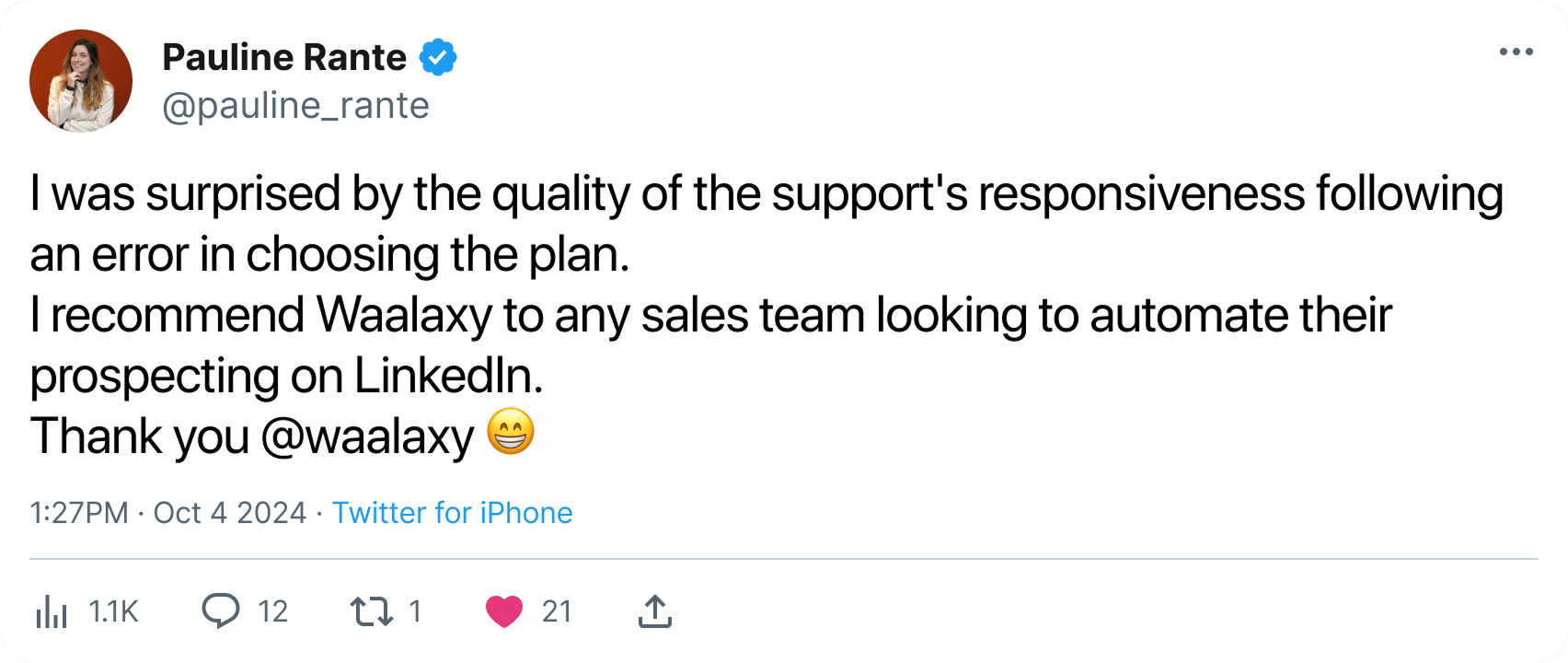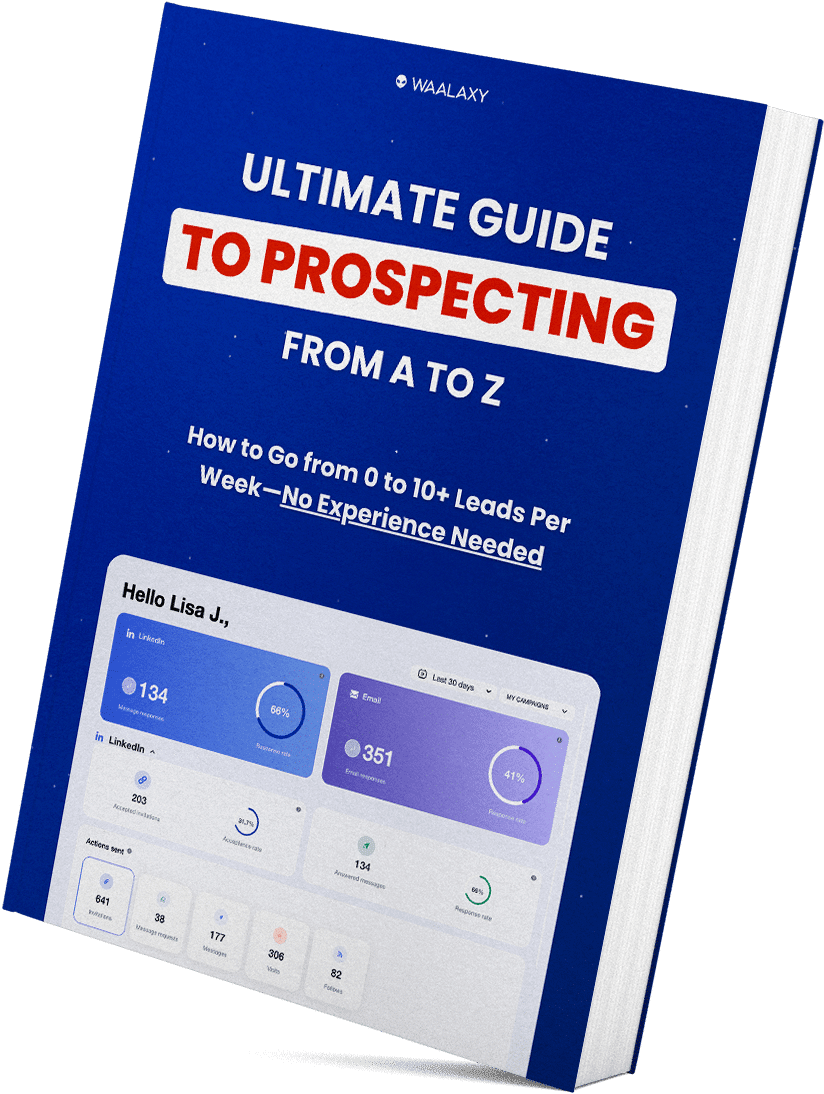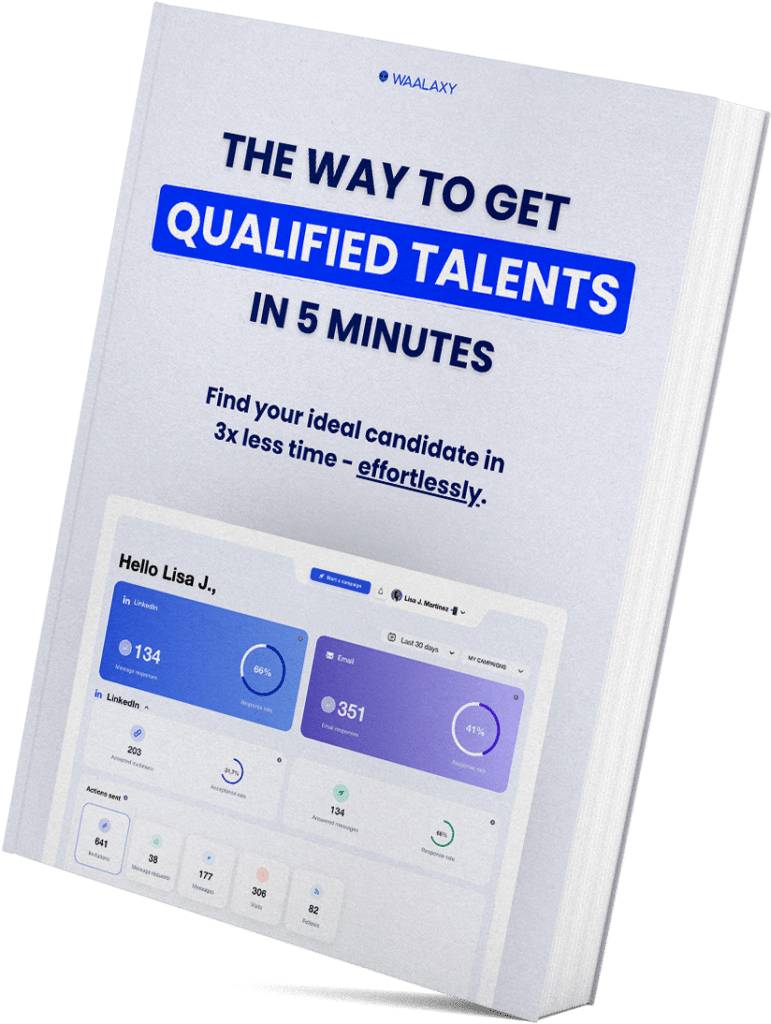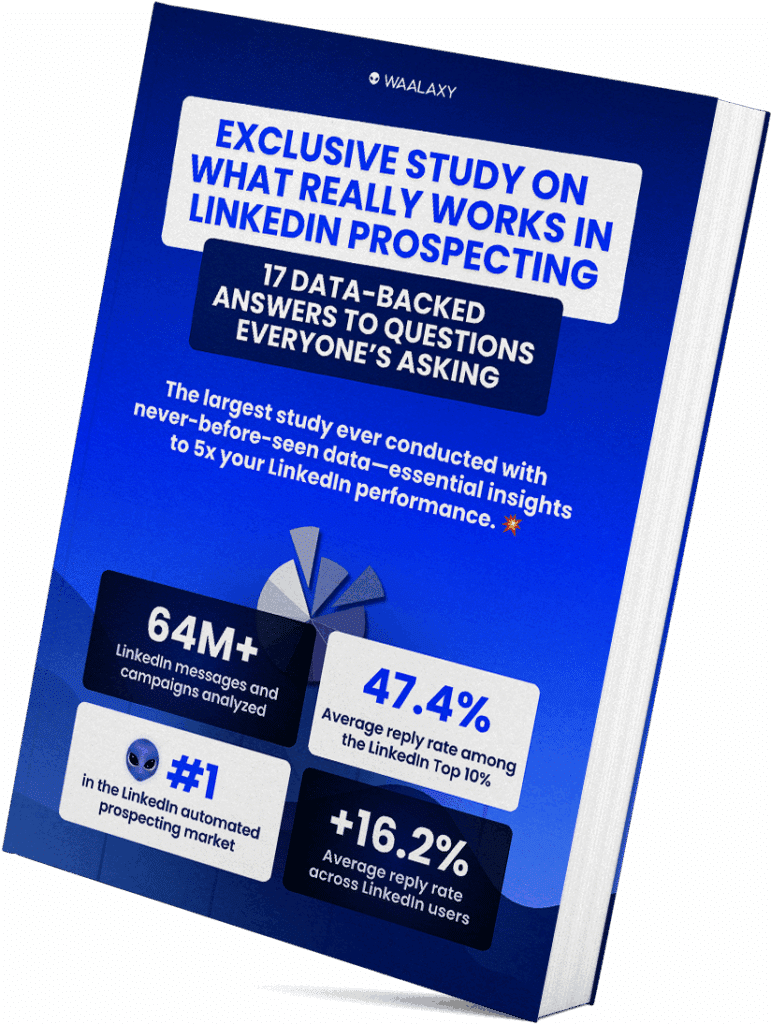Want to know how to succeed with your outbound marketing strategy? To understand what makes entrepreneurs successful in 2022?
In this article, we will mainly focus on:
- The definition of outbound marketing.
- The levers of the outbound strategy.
- The examples of outbound.
- The differences between Inbound and Outbound.
It’s happening right here. 👇
Outbound marketing : Definition
You may not know what outbound marketing is 🤔 ? No worries, we’ll explain what it is.
Outbound marketing is a marketing strategy that involves reaching out to potential customers using techniques such as advertisements, promotional emails, phone calls and live events. It is a proactive approach that aims to reach customers where they are rather than waiting for them, unlike inbound marketing. The goal of outbound marketing is to generate leads and drive sales. It is often used in combination with inbound marketing for an overall marketing strategy.
What are outbound marketing techniques?
Outbound marketing techniques include:
- Online and offline advertisements.
- Promotional 📩 emails (this is an effective way to reach potential customers with information about the company’s products or services).
- Phone calls (especially relevant for contacting customers and informing them about the company’s offers).
- Live events and public relations campaigns (with the advantage of having customers meet face-to-face).
Online ads include banner ads on websites, social media ads, and video ads on YouTube while offline ads include billboard ads, magazine and newspaper ads, and TV and radio commercials 📻
It’s important to note that outbound marketing can be expensive 💸 and that targeting target audiences is relevant to maximizing results. It is also important to measure results to determine the effectiveness of outbound marketing campaigns.
The 3 steps of the Outbound strategy
The first thing you need to know is that you should not rely on Outbound, but on a marketing strategy diversified . Try to look at the company as a human body, each organ represents a strategy. Even though Outbound will be the heart of it 🧡 you need all organs to work in harmony.
You will also need to think about incorporating other techniques. Fortunately this top level is the 1st of many, and we’ll explain it all to you
#1 Find and segment your audience
In this article you’ll find 4 powerful ways to segment your Btob audience.
- Informational targeting on LinkedIn (the data that the user has entered on their profile).
- Behavioral targeting on LinkedIn (the user’s actions: profile visits, likes, posts).
- Google Dorking (finding free information on Google).
- Open data (get maximum data enrichment).
Information targeting on LinkedIn
LinkedIn is THE btob Network on which you can find :
- 740 million people.
- 120+ million users per day.
People connect very regularly to their profile In France: 4 million users connect every day and update their profiles. This is the Btob social network to be on.
Behavioral targeting on LinkedIn
What is it? Find new new customers by contacting prospects who perform an engaging action on LinkedIn. There are 3 forms of action:
- A visit to your profile.
- Liking one of your posts or the post of someone who has the same target as you.
- A comment on one of your posts or the post of someone who has the same target as you.
The best, as you will have understood, is that a prospect comments on your post or that of a competitor.
Someone commenting on your LinkedIn post is already a prospect of interest.
They are interested in you or what you offer.
You are already creating a connection and a trusting relationship.
All you have to do is contact them.
Moreover, this proves that:
- The prospect is active on the network.
- They are interested in what you do or in your industry.
You can therefore perform an ‘auto-import’ and insert them directly into a campaign. What is also useful with this technique is that you can go and acquire leads on the posts of your competitors 🔥
There are tools like ProspectIn or Waalaxy that allow you to automate this acquisition of leads .
Google Dorking for your exit
Well, LinkedIn is great, but it’s not the only option.
You can target through Google, for free through this wonderful hack. It’s pretty cool.
Are you ready? You’ll find:
- Qualified leads,
- Email addresses,
- Phone numbers .
But how? Thanks to Booleans (those little words really are magical ✨) We call it Google Dorking. Google Dorks are combinations of keywords recognized by the search engine, they help you segment on Google.
How do you use Google to target your prospects?
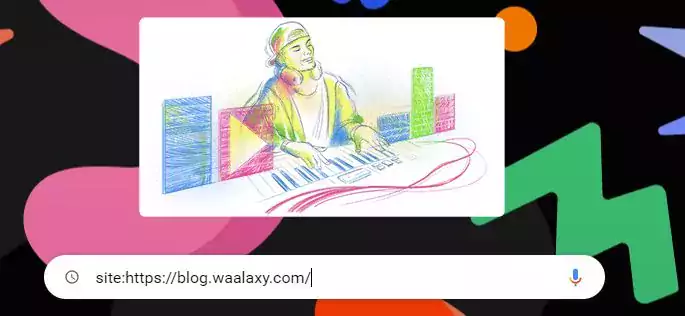
Simply go to Google and integrate a dork in your classic search.
You can use several dorks:
- site:
- All the information you find will be on this site. Example: site:linkedin.com/en
- ~
- A tilde (~ ) must be added between the site and your search on the site, to indicate more precisely to Google what you are looking for on this one. Example: site:linkedin.com/in ~ CEO
- AND, OR, NOT
- By using these Boolean operators, just like on LinkedIn, you can see who is using certain keywords on their profile. The location must be enclosed in quotes. Example: site:linkedin.com/in ~ CEO AND “Paris, France” AND Internet.
How to retrieve your prospects’ contact information from Google?
To retrieve emails or personal phone numbers, just add a boolean afterwards site:linkedin.com/in ~ CEO AND “Paris, France” AND Internet AND “@gmail.com” OR “+33”. Needless to say, this is not RGPD and it is often prospect’s personal emails, rather than their professional ones. We have a more qualitative technique. It involces the use of our email finder, which we’ll be sharing with you very soon. Continue reading 😉
Essential resources for your Outbound strategy with Google Dorks
- Instant data scraper : A free tool that allows you to download in CSV or XLSX format your Google search and thus clean up your data scrapping very quickly.
The Open Data tool in 1
- societeinfo is a very complete tool that allows you to scrape all the legal information of companies and enrich them with information found on the web and social networks. You can also add an overlay to find all email addresses and phone numbers. In short, with this tool you can know everything about a company and its teams.
You can also use booleans on this tool 😎
Enriching e-mails and phone numbers
As you have seen, we can find e-mails via Google Now. However, there are other tools that allow you to find business email addresses and check their reliability. Dropcontact is the most reliable tool on the market in 2021. 🧺 Resources:
- What is drop Contact’s email verification and why is it fully secure and GDPR compliant?
- Enriching your emails with Drop contact, how does it work?
At Waalaxy, the tool is directly integrated in our automated prospecting solutions, just follow a short tutorial, and BAM, you are connected. You can then segment, find leads and enrich your emails in a single campaign . 🚀
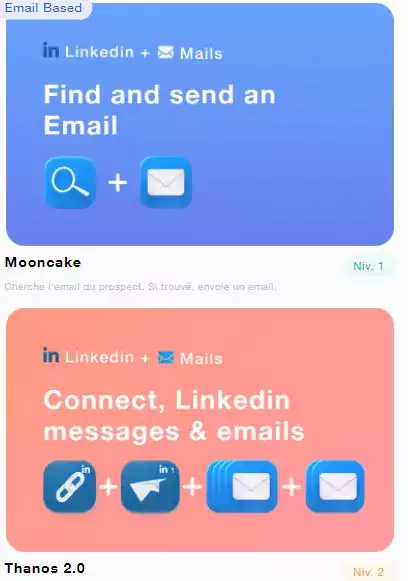
#2 Succeed in your writing
You know, a bad prospecting message is when you feel when reading a message that you are trying to sell something while apologizing for existing.

LinkedIn Copywriting to boost your Outbound
We don’t need to repeat the importance of LinkedIn here. So instead, let’s look at how to write your prospecting messages. We will focus on 3 points: The method, the templates, and the length of the content.
The method that works on LinkedIn: VS4C
So, let’s get back to the basics. When writing a first prospecting message, you will need to include all of the following points – no exceptions.
What is the VS4C method?
- V for Value = What you bring to the market.
- S is for Sincerity = Showcase your personality and authenticity.
- C is for Clarity = We need to understand in a few powerful words what you do.
- C is for Conciseness = Very short messages.
- C is for Targeting = Speak the language of your target.
- C is for Confidence = Inspire confidence by taking care of your profile and your storytelling.
Every time you start writing a new message for your campaigns, make sure all SV4C elements are included.
Be original in your prospecting efforts
In SEO, we realize that there are thousands of searches per month for the queries “LinkedIn message templates.” Be aware that if you copy and paste a message from the Internet, you are not the first to do so. In fact, you’ll end up like thousands of others using “the best 2022 template” and that template will be meaningless.
Anything that is duplicated loses its authenticity and subsequently its results.😪
Find someone in your company who can write. If that’s not you, who cares, but do something unique for each of your campaigns.
Short and effective messages
We’ve seen in our statistics that 300 characters is enough to sell. Not only are they enough, but they convert twice as much as longer messages. You need to generate interest in 300 characters.
Your Cold Emalling is successful thanks to these techniques
A quick reminder of the vocabulary of Outbound: A cold email is an email sent to someone who does not know you. You address a contact “cold”, hence the term “cold” and you try to establish the first links with them. For cold email, several tools exist, such as Waalaxy, and Lemlist.
The CPSC framework
Works best if you offer “vital” products for the business, it will really make a difference.
- Introduction 🐱👤 From where you contact him and why.
Good practice > put on a custom Icebreaker or not, it’s up to you. Some people are fans, some are not. But it should be easy to set up. Explaining the context is key. Emphasize that you care about your prospect – we’re all narcissists, we love that.
Example of a personalized Icebreaker: Hey, I saw you commented on Benoit’s post on automation.
Example of a non-personalized Icebreaker Hi, I’m reaching out to you via LinkedIn.
- Problem 😫 I would like to know what you are using for (…) We offer solutions for (…).
Good practice > Awaken a problem in a very quick and subtle way.
Example: I’d like to know what you use to automate your prospecting and if it’s effective?
- Solution 💡 At (…) we help (…) + social/technical proof.
Good practice > Take the best sales person in your company, or the one who knows the user’s needs best = they are the same as your prospects! He/she will help you find convincing sales arguments.
Example At Waalaxy, we help over 9,000 customers contact up to 1,000 hot prospects per week in 10 minutes per day
- Call to action 🚁 Clear and brief.
Good practice > You’ve already done everything right. Don’t sound desperate, play it cool.
Examples:
Do you want to know more?
Shall we discuss it?
The CPPC framework
Works best if you offer products that are “nice to have” for the company. That is, they are strategic to have, but not mandatory (This will allow them to perform).
- Introduction 🦸 From where you contact them and why.
Good practice > same as for the CPSC framework.
- Proposal 🐱🏍I work at (…) we help (…) + social/technical evidence through: presenting your solutions.
Good practice > you showcase your products. Make sure you speak the same language as your prospects and don’t lose them in the misunderstanding of your own jargon. Keep it simple!
Example: At Waalaxy, we help over 9,000 customers, contact up to 1,000 hot leads per week in 10 minutes per day with our multi-channel automation tool (LinkedIn+Email), a Mail Finder to find lead contacts and automatic imports that automatically feeds their hot campaigns 🔥
- Projection 🧚 More specifically, we (add a value proposition).
Good practice > Keep their problem in mind, so they project that their life should be easier with your tool.
Example : Concretely, our customers save 70% of their time as they automate the whole process with our tools and boost their sales by 40% in 3 months
- Call-to-action 🚁 Value proposition reminder + call-to-action.
Good practice > Be careful not to be too “pushy” with your reminder. You don’t sell at any price, you subtly offer a choice. Outbound has changed its face and softened to meet the trend 😌
Example: I have detailed content on our best prospecting tips. Do you want to discuss it?
Even more Outbound Frameworks tested and approved .
Empathy is priceless, but it pays off!
Whether on LinkedIn or by e-mail, always remember not to write as a salesperson, but to write the message you would like to receive if you yourself needed a solution. Put yourself in your prospects’ shoes and your campaigns will be more successful. To help you write, here’s a little technique, Benoit and Toinon use:
- Write in one go,
- Let 24 hours pass.
- Reread your message,
- Delete 20% of the content.
- Restructure.
- Send it!
Sequencing your emails to boost your outbound
You will observe one important thing in your marketing campaign. The open and response rate to your emails does not decrease. That is, if you have a sequence of 5 actions, each marketing email will have a similar rate, or at least, IT CAN have the same rate if you work equally well all your emails.
Example: 15% response at each step.
Sequencing your emails can clearly help you boost your sales, but also gain awareness. This is Zajonc’s cognitive bias, called “simple exposure,” which means you enter your prospect’s brain and they store you in a small space of their memory. You’re already creating a connection, provided their experience is positive. Hence the importance of careful copywriting 😎
It’s the same thing on LinkedIn, so set up a content strategy! If you publish a lot on the network, your contact will be more inclined to reply to you, because they feel they already know you.
Which sequence for your e-mailing campaign?
After having tested several hundred marketing sequences, this one seems the most relevant:
- Email 1: Icebreaker 🧊 For example, you can use the CPPC frame.
- Email 2: Press twice 💪 Very short follow-up (D+2/3). Example: Hello {Firstname} Did you receive my email?
- E-mail 3: Document 📄 A document with high added value, which provides solutions to their needs + reminder Call to Action .
- Email 4: Short Reminder 🏌️ Ask for feedback on the document in question.
- Email 5: Breakup 💔 You didn’t get a response, you close the exchange. Example: I understand this might be a difficult time. How about I get back in touch in 2 months?
Good practice > each email has a unique purpose in your commercial prospecting. Don’t send your target prospect into a labyrinth where he/she has to download the document, buy the tool, watch the video… your writing must be centered on an objective, an action to be taken 🎯
How to test an email marketing sequence before launching?
Some best practices to help you get started 🎁
- Start with sequences of 3 emails maximum, don’t complicate things right away.
- Test on targets. B2b well-segmented targets (200 to 300 contacts maximum before launching into larger volumes).
- A/B test as much as possible the objects and the content of the emails.
- Check your Analytics and conversion rates. Readjust everything (retargeting, optimization…) and re-launch.
- Select and replicate the best ones.
Even in B2c you can go out and find partners and journalists, network and boost your e-reputation, in short, the outbound will always serve you well.
#3 Automate your prospecting
First of all, be aware that digital automation is not for everyone. It can’t be repeated enough, but if you have few prospects and a niche business, it is in your best interest to hunt on LinkedIn (and other channels), but not to automate your actions. On the other hand, if you have large reachable volumes in the B2B sector, the following will speak to you! With marketing automation, you will:
- Save time and efficiency.
- Scale up faster and smarter.
Some best practices to get you started 🎁
-
- Don’t complicate your lead generation right away. Start with a single-channel, then move on to multi-channell strategies, when you already have good results on LinkedIn or by email.
- Think about security first: watch your deliverability. If you don’t follow these steps your emails will automatically arrive in spam folders. Follow these steps to avoid having your LinkedIn account banned at all costs.
- Ockham’s razor: always go for the simple stuff. We aim to do as little as possible, not to work harder ??
Tools to automate your outbound
- Waalaxy ex ProspectIn – (l’ marketing tool marketing tool – LinkedIn + Mails) See the demo 🎬.DropContact is integrated into the tool that allows you to automatically retrieve emails from your prospects.
- Lemlist – (Emails) View demo ?
- Mailingvox – (Direct response/ SMS ) Send an automatic voice message to the answering machine of your prospect. How does it work?
- Zapier/intergromat – (integration + multi-channel) Integrate multiple web applications See the demo ?
- Hubspot/pipedrive – (CRM) Visit the site .
Best practice > For successful marketing: don’t take on too many tools, use the best ones Don’t complicate your life.
How to evolve your Outbound?
Some best practices to get you started ??
- Increase your volume gradually.
- Model your funnel. (Customer conversion tunnel).
- Use a CRM .
- Use the right tools (Zapier, Drop contact, Waalaxy, Hubspot…).
3 examples of outbound marketing
To help you better understand what outbound marketing is, we have prepared some examples.
#1 Trade Show
Our first example will talk about a clothing company that organizes an ephemeral sale during a trade show. This company can use this event as a lever for outbound marketing. In this way, it can use local newspapers, banner ads as well as Ads to promote and attract the attention of potential customers 👀 in the store.
Why is it interesting? Well, because the company can present its products to a targeted audience 🎯, establish contacts and business partnerships. In addition, it will be able to collect information on market trends. Companies can hold product demonstrations, workshops and presentations to attract the attention of visitors and encourage them to make contact. In addition, you gain visibility that should not be overlooked.
However, this strategy can be costly and it is important to target trade shows to maximize results.
#2 Emails
As a second example, we decided to tell you about a software company that sends promotional emails to a list of targeted contacts to inform them of new features and special offers. Here, it is the promotional emails lever that is used as an outbound marketing lever.
You should know that email 📩 marketing is a powerful tool for outbound marketing, which allows companies to target people who have expressed interest in their products or services or have given their email address. Emails can include special offers, product information, company updates and other content relevant to the recipient.
By using demographic and behavioral data, companies can target emails to specific groups of people for better relevance. Emails can also include calls to action or CTAs to encourage recipients to make a purchase 💰 or visit a website. It is important to follow permission rules when sending emails to avoid being considered spam. Using automation software can also help businesses track the performance of their email marketing campaigns to evaluate their effectiveness.
In general, email marketing is an effective way to stay in touch with existing customers and generate sales from potential prospects.
#3 Phone calls
Example three: A service company that makes phone calls to a targeted contact list to inform potential customers about the company’s services. This is an example of using phone calls 📱 as a lever for outbound marketing.
Outbound marketing phone calls are a marketing technique used to make direct contact with prospects and potential customers. The goals of outbound marketing phone calls can vary from lead generation to selling products or services. Phone calls are often used to reach people who don’t respond to other forms of marketing, such as emails or social media posts.
Companies can use lists 📄 of prospects to target phone calls. Call scripts are often used to guide the conversation and help sales reps achieve their goals. Phone calls can also be automated with telemarketing systems to reach more prospects.
It is important to follow the rules and regulations for commercial phone calls, including privacy laws. Companies should also make sure they do not harass prospects with frequent or unwanted calls.
The differences between inbound and outbound marketing
Inbound marketing and outbound marketing are two distinct marketing strategies that have different goals and approaches.
Inbound marketing is an approach that involves attracting potential customers to a business by creating interesting and useful content ✅. Inbound marketing techniques include content marketing, SEO, social media and email marketing campaigns. The goal of inbound marketing is to attract potential customers by providing them with interesting and useful information about the company’s products or services.
Outbound marketing, on the other hand, is an approach that involves reaching out to potential customers using techniques such as advertisements, promotional emails, phone calls and live events. It is a proactive approach that aims to reach customers where they are rather than waiting for them. The goal of outbound marketing is to generate leads and drive sales.
In summary, inbound marketing is an approach that attracts potential customers to the company by creating interesting and useful content, while outbound marketing is an approach that involves reaching out to potential customers using techniques such as advertisements, promotional emails, phone calls and live events.
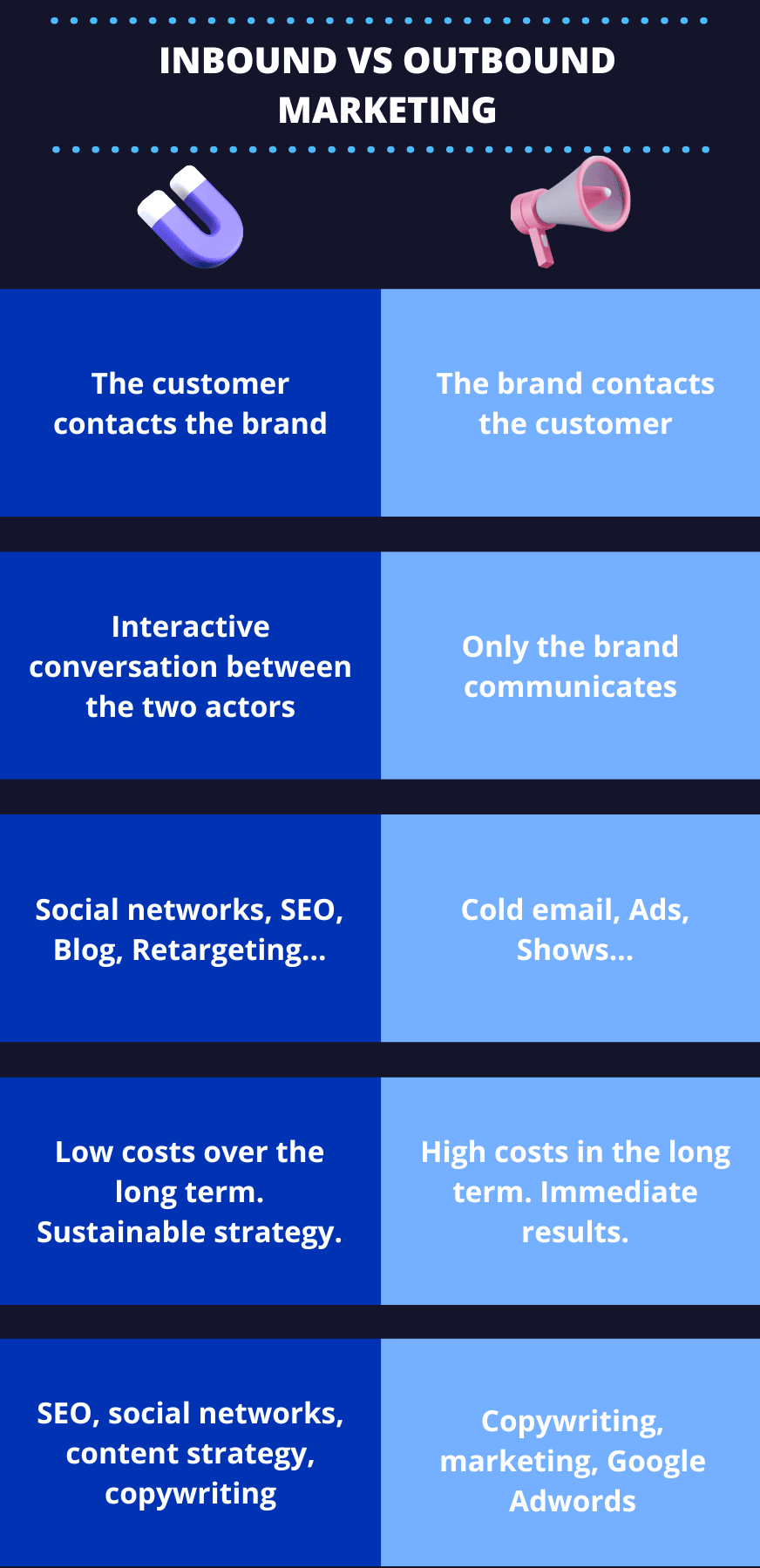
Conclusion of the outbound marketing article
In this article, you have found and you can consult at any time:
- The definition of outbound marketing.
- The levers of the outbound strategy.
- The examples of outbound.
- The differences between inbound and outbound.
You are ready to smash the world of Outbound marketing to become ultra successful.
FAQ of the article
Classic LinkedIn or Sales Navigator?
Sales Navigator ✅
Think about it: it’s not about the price of a tool, it’s about your return on your investment. Sales Navigator is a must-have, you just have to know how to use it. There are 3 types of filters to help you segment your prospecting:
- Liquid filters.
- Flexible filters.
- Rigid filters.
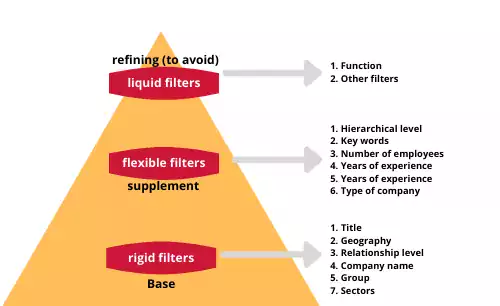
What are the best filters?
The most interesting are the rigid filters. These are binary filters. Either they work or they don’t. The segmentation will then be much more accurate. The higher up the pyramid you go, the less accurate it becomes. So consider segmenting from the bottom up, moving from rigid filters to liquid filters.
But be careful with liquid filters: they are not at all qualitative. For the same reason as mentioned above, they lose accuracy. We do not recommend using them. Rather, opt for for other searches. 😉
How much should you segment?
Segmentation is as important as your copywriting. The more precise you are in your searches, the more you can personalize your automated approaches. The goal is to think in personas. You will be delivering a message to a certain audience. That audience is NOW what you define it as.
If the LinkedIn targeting is bad, the message will be bad.
💥Important💥
You should have less than 2500 results with Sales Navigator (only 1000 with the standard search). Beyond this number, Sales Navigator does not show you the results you have obtained and therefore, you “lose” these prospects.
Good practice > We even advise you to go well below this 2,500 mark by using the additional (flexible) filters and to repeat on several campaigns by changing one or two variables at a time.
Hack #1: Boolean operators
To help you segment your searches, you have a great ally: Boolean operators.
Access any filter where you can write what you are looking for.
You can refine your search with:
- “OR” and “AND” to include parameters.
- “NOT” to exclude.
- Parentheses and quotation marks () “”.
Example : You are looking for sales people.
Write:
Commercial OR Sales NOT Sales Assistant.
Essential resources for your outbound sales
Because in the word “summary” there is “summary”. I’m not going to explain everything in this live, but the essentials of the tools that were mentioned 🔥
Online tutorial training:
Hacks offered:
You now know everything about outbound marketing.



